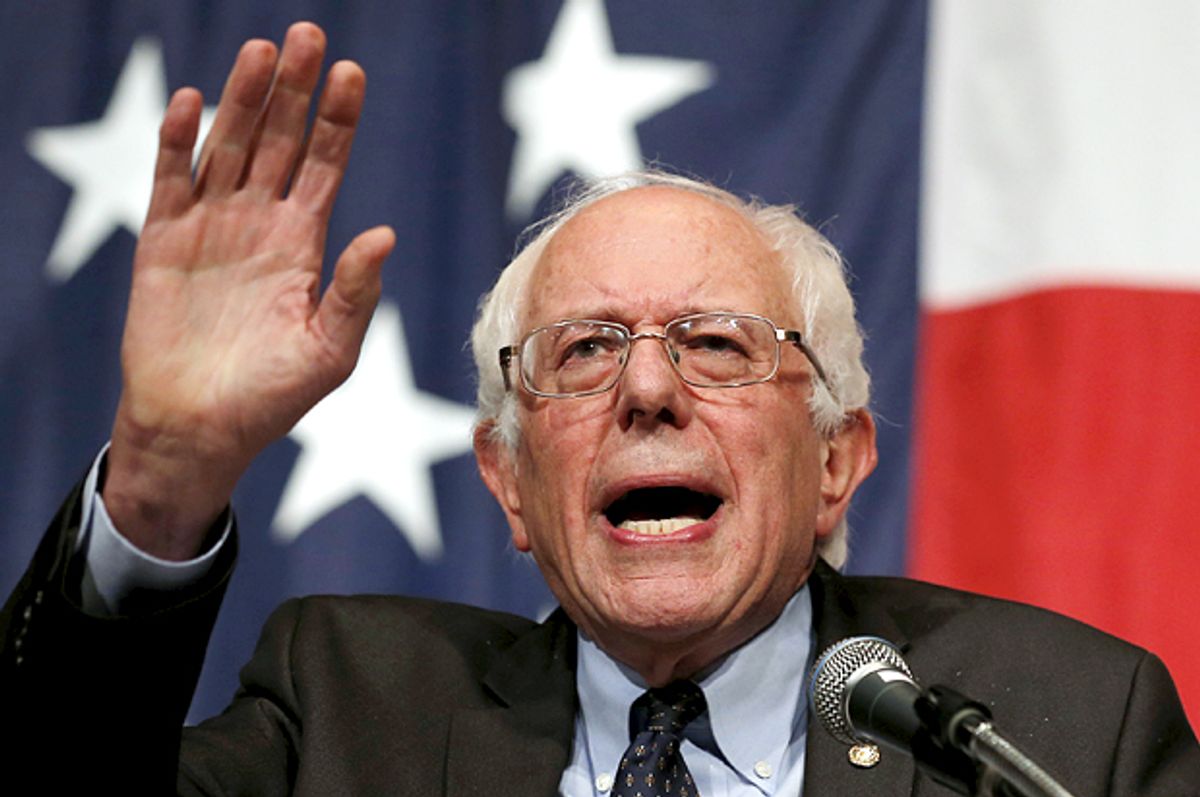As we celebrate Labor Day 2015, it’s worth pausing to consider which candidate running for president best represents the working class. The Republicans, despite their folksy rhetoric, are the party of Big Business. For decades, their policies have undermined the economic interests of their social base. They support corporate tax cuts; they push trade deals that outsource jobs to low-wage countries; they oppose raising the minimum wage; they want to shrink social safety nets; they refuse to invest in America’s crumbling infrastructure and their pro-corporate policies, which masquerade as small government initiatives, have increased income inequality and put the squeeze on the middle class.
If you doubt the GOP’s indifference to working and middle class issues, re-watch the last Republican presidential debate. Among the many things not mentioned were campaign finance, the wealth gap, institutional corruption and student debt. These are all problems that disproportionately harm working class voters; Republicans ignore them because their policies are responsible for them and because they don’t have (or desire) solutions.
So that leaves the Democrats. As I wrote last month, there are two candidates who matter in the Democratic race right now: Hillary Clinton and Bernie Sanders. If you’re concerned with the rights and welfare of workers, it’s not even close: Bernie Sanders is the most credible candidate. Clinton is conscious of Sanders, so she’s moved slightly to the left in recent months, but if you look closely at their positions on middle class issues, the contrast is clear.
In the last week or so, an image has gone viral which highlights the opposing views of Clinton and Sanders. From Wall Street chicanery to worker-owned cooperatives to the Trans-Pacific trade deal to financial corruption to military adventurism, Sanders is on the side of the working class — and Hillary is not. And even on an issue like raising the minimum wage, something of direct and immediate benefit to the poor, Clinton is tepid in her support, and opposes a national $15 minimum wage — the goal of the "Fight for 15" movement. Sanders, on the other hand, is unequivocal in backing the Fight for 15, as he is on most subjects.
Not to belabor the point, but the differences between Sanders and Clinton go beyond their policy positions. Sanders’s campaign is voter-financed, consisting almost exclusively of small individual donations. Clinton’s campaign is financed in the same way every other establishment candidate’s campaign is financed — through large donors, well-heeled donors. I don’t necessarily begrudge Clinton for going this route; she’s operating in a political ecosystem that incentives corruption. But the contrast between Sanders and Clinton on this front is striking to say the least.
Union leaders, the people closest to the labor movement, know Sanders is the more authentic candidate, but they have a difficult decision to make: Do they vote with their heads or their hearts? Do they endorse the candidate who most personifies their ideals (Sanders) or do they endorse the candidate most likely to win a general election (Clinton)? Individual voters face this choice, too. And it’s not an easy one.
I’m sympathetic to (if not quite convinced by) the pragmatic arguments in defense of Clinton. While she may not be as strong a candidate as Democrats once believed, she remains the frontrunner by any measure. And given her campaign infrastructure and organizational resources, she’s more equipped to defeat a Republican in a general election than Sanders. But make no mistake: Clinton is a flawed candidate, and Sanders has far more appeal than the skeptics imagined.
Pro-labor voters will likely remain split on Sanders and Clinton, and for understandable reasons. But they should be honest about what they’re choosing between. The choice here is between ideals and electability, between values and pragmatism. Of course reality isn’t so neat — Sanders may well be electable, but until that happens we won’t know for sure; it’s a gamble either way.
Impressive as she is, Clinton still sounds like a politician’s politician: She’s on-message, rarely veering from poll-tested talking points. And that’s precisely why she lacks the authenticity of Sanders, particularly on populist issues. Sanders’s strength is his straightforwardness. He is exactly who and what he says he is and no one, on either side, doubts that. Unlike most politicians, Sanders hasn’t shape-shifted over the years. He doesn’t flop with the political winds the way Clinton and almost every other candidate has — that’s why he’s more believable.
It’s entirely possible that Clinton would serve the interests of the working class as president, but there’s good reason to doubt that. Not so with Sanders. His record and anti-establishment bona fides are unmatched in Washington. Thus when Sanders says he’ll fight for labor, for blue-collar Americans, you know he’s sincere.
Given the decline of organized labor and the concomitant destruction of the middle class in this country, Sanders’s voice is all the more important — whether he wins this election or not.


Shares